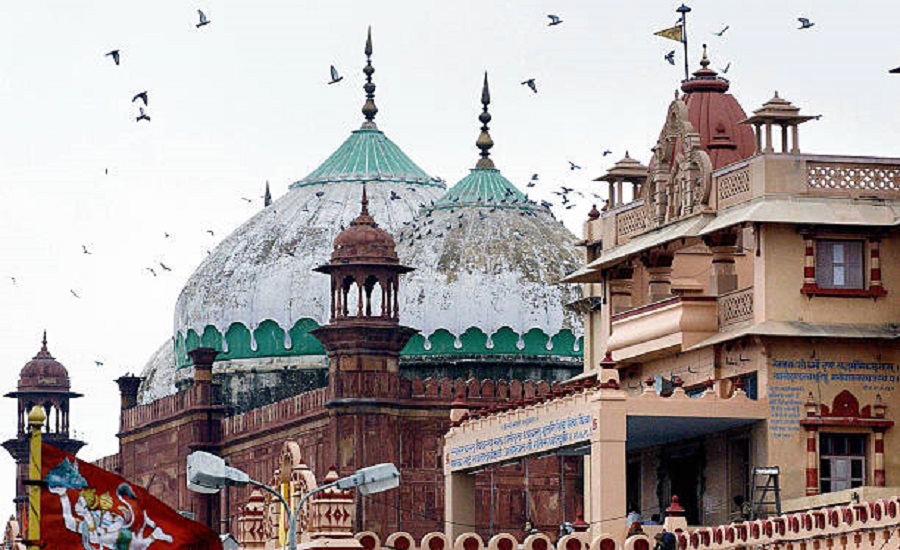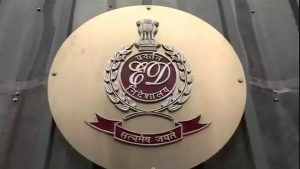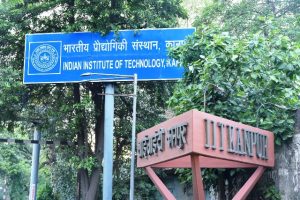Mathura, 24 Dec: A local court in Uttar Pradesh’s Mathura on Saturday ordered the Archaeological Survey of India to review the Shahi Idgah Mosque, which is supposed to be built on the “Krishna Janmabhoomi,” or birthplace of Lord Krishna, after January 2.
The report will be turned in after January 20th. The decision was issued in response to a complaint brought by Vishnu Gupta of the Hindu Sena, who claimed that the inspection would be similar to one conducted at Varanasi’s Gyanvapi mosque, where a “Shivling” was discovered during a survey.
The court has set January 20 as the next hearing date in the case.
The lawsuit is one of numerous filed by Hindu organisations requesting the destruction of the 17th century Shahi Idgah Masjid from the Katra Keshav Dev temple, claiming the mosque was constructed on Lord Krishna’s birthplace.
According to Vishnu Gupta’s petition, the Shahi Idgah mosque was erected in 1669-70 on the instructions of Mughal emperor Aurangzeb on the 13.37-acre grounds of the Katra Keshav Dev temple at the Krishna Janmabhoomi.
According to Vishnu Gupta’s lawyer, Shailesh Dubey, on December 8, Delhi-based Gupta, national president of the Hindu Sena, and its vice-president Surjit Singh Yadav, presented this accusation in court.
“He recounted the full history of Lord Krishna, from his birth to the construction of the temple, to the court. He has also sought that the 1968 agreement between Shri Krishna Janmasthan Seva Sangh and Shahi Idgah be annulled, calling it unlawful,? Dubey stated.
The civil court in Mathura had already dismissed the complaint, stating that it could not be allowed under the Places of Worship Act of 1991, which preserves any place of worship’s religious character as it existed on August 15, 1947.
The Ayodhya temple-mosque dispute, involving the 16th century Babri mosque, which was demolished in 1992 by Hindu activists who felt it was built on the remains of an old temple, was the lone exception to the legislation.
In 2019, the Supreme Court gave Hindus the mosque site for a huge Ram temple and ordered alternate property for a mosque.
The Mathura court had already dismissed the Krishna Janmabhoomi complaint, stating that if it was registered, numerous believers would approach the court in different instances. Petitioners then filed an appeal against the order. The petitioners contended in their complaint that as Lord Krishna followers, they had a right to go to court.
They claim the right to worship at Lord Krishna’s actual birthplace.
The Akhil Bharat Hindu Mahasabha had earlier this month called for reading Hanuman Chalisa within the Shahi Masjid Idgah to commemorate the demolition of the Babri Mosque. One of the group’s leader was apprehended, and seven or eight more were held.
In May of this year, in Varanasi, the Hindu side claimed that a shiva linga was discovered in the pond inside the Gyanvapi Masjid complex during a court-ordered three-day videography survey. “The pond was utilised for ablution (wuzu) purifying rites,” their lawyer said, adding that water was emptied from it and a shiva linga was discovered.
The Varanasi District Magistrate, on the other hand, stated that no information of the Gyanvapi mosque survey were shared by any member of the panel that conducted the study. Following the survey, the court is still examining various petitions submitted by both parties.
Following the Supreme Court’s momentous decision in the long-running Ram Janmabhoomi case in November 2019, Hindu organisations have stepped up their efforts to’reclaim’ what they claim are ‘Hindu shrines’ in Mathura and Kashi.





